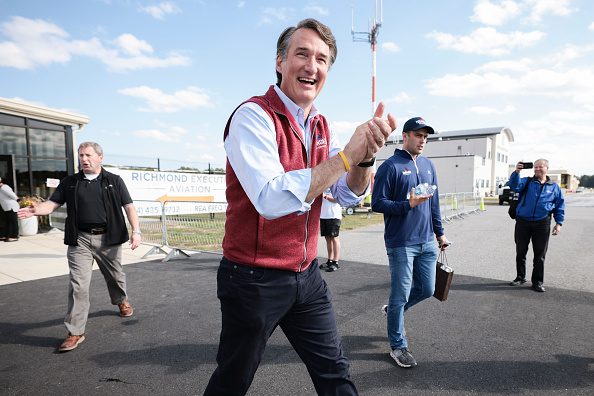How Virginia Makes a Good Case for Early Media Spend
Defining the candidate with heavy media spending early is a path other GOP campaigns may look to follow in ’22 as the party’s hopefuls in certain states will need to steer the conversation away from former President Trump.

Image Credit: Getty Images
We’ve heard for a while now from media consultants urging clients to get up on the air earlier and for some, the Youngkin campaign in Virginia offers another justification to those pushing their clients to consider shifting some of their media budget up from the pre-primary and pre-general election windows.
One of Youngkin’s lead media consultants credits his early spending for helping define his political brand and prevent any association with former President Trump from sticking in voters’ minds. It’s also a path other GOP candidates may look to follow in ’22 (assuming they have the resources to achieve it) as the party’s hopefuls in certain states will need to steer the conversation away from the former president.
“We were not going to be able to ride some other Republican brand and have any chance of winning, so we knew we had to build it from scratch. We did that by channeling the things that Glenn authentically put off,” Will Ritter, co-founder of POOLHOUSE, the GOP firm that created 40 statewide TV spots for Youngkin.
At first, Ritter and his team worked to define Youngkin with positive bio spots — as a businessman and a political outsider. “Early in the summer, we started doing ads about his bio, how he got going in business, how he got a basketball scholarship — things that had nothing to do with the current cable news debate,” Ritter explained. “We didn’t go after Biden. We just talked about Glenn and we talked about Virginia.”
They were able to do that with “a few million dollars” for about six weeks before the McAuliffe campaign responded. Youngkin was clearly advantaged by his ability to self-fund in addition to having a solid fundraising operation. And while that’s certainly not an edge every Republican contender in contested statewide races next year will be able to boast, the principle remains: Focus on defining your candidate before the opponent gets there and use what early resources you have to try to make it happen.
“Terry’s first ad was a negative attack ad saying that Glenn Youngkin was Donald Trump, but the problem was the audience that he was talking to had had a pretty reasonable impression of who Glenn was already for a month and a half, so it just kind of bounced off,” Ritter said. “[Voters] were saying to Terry, ‘You have to tell us more about why we should reject this likable Youngkin. Just saying he’s a Republican ain’t going to do it.”
The Youngkin campaign focused its spots on education, crime and the local economy.
“Everything had to be in one of those three buckets, positive or negative,” Ritter said. “The pace was constant and we kept on moving the conversation around those three topics, and with Terry changing all the time and reacting all the time we seemed like we had more of a coherent message.”
When it came to staying on message, another reason it was easier for Youngkin was how Trump factored into the race. Four years ago, when Republicans lost the governor’s race, he was the sitting president and active on Twitter. As a result, GOP nominee Ed Gillespie had “to go wherever the message of the day goes, no matter how disciplined you want to be. That’s not the situation anymore,” said Ritter.
In 2021, Trump’s absence “gave us freedom to talk about the things that we wanted to talk about, but it takes a lot of discipline because the press would like to slam everything back into that framework,” he said.
“We did not have any problem with Trump, but we were running on three different issues not as a referendum for or against Trump and I think that other campaigns can definitely use that going forward.”
